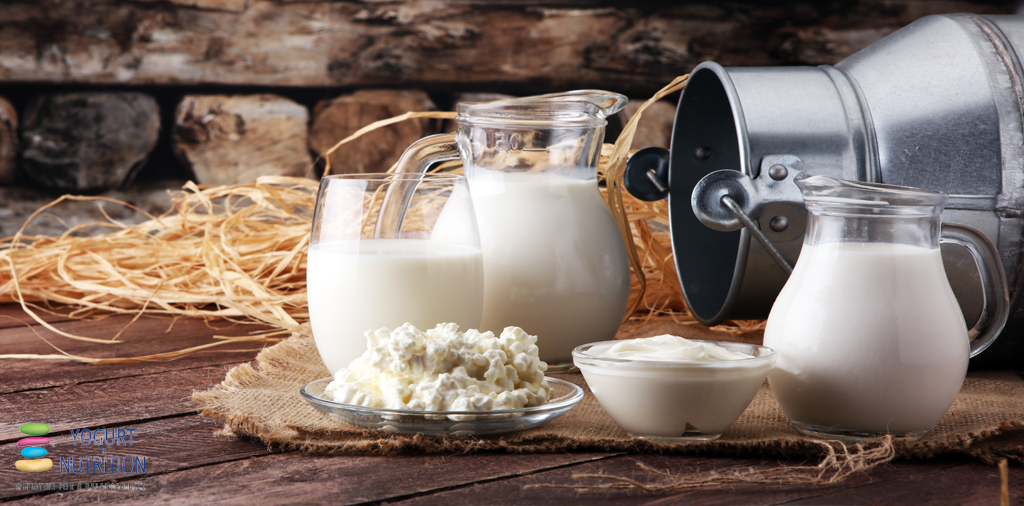A balanced mix of bacteria in the gut helps keep us in tip-top shape, with worrying conditions such as obesity, diabetes and inflammatory bowel disease all being associated with an upset in this delicate balance. A burst of scientific studies is pointing to the potential re-balancing effects of certain foods, in particular, fermented foods such as yogurt.
And now this latest research reveals how yogurt may affect the crucial mix of bacteria living in the gut, and thereby provides clues as to what may underly the association of fermented foods with health benefits.
Why are fermented foods considered healthy?
Fermented foods such as yogurt have been associated with improvements in cholesterol and blood pressure, reduced risk of type 2 diabetes, and improved gut function.
Fermentation involves adding bacteria to a food, and the health benefits associated with fermented foods have been attributed to the bacteria they contain or to by-products created by the bacteria. These by-products include biologically active peptides which can affect bacterial growth - so it’s possible that they might modify the composition and function of the bacteria that live in the gut (the gut microbiota).
‘Yogurt is one of the most commonly consumed fermented foods.’ – Rettedal et al, 2019.
But the way in which fermentation might change the gut microbiota largely remains a mystery. And we don’t know whether cow’s milk has different effects from those of other animal-source milk. The types and numbers of bacteria in our gut are influenced by our genes and by the environment, including our diet, and working out what’s going on can be difficult because of the complex lives we lead. Sometimes the best way is to look at what happens in animals, say the authors.
What this study aimed to do
Their study, carried out in rats, compared the effects of milk and yogurt from cows and sheep on the composition of the gut microbiota. The yogurts were treated to kill off the yogurt starter culture bacteria so that they wouldn’t influence the gut microbiota.
Groups of rats had their diet supplemented for 2 weeks with one of the four dairy types – cow’s milk, sheep’s milk, yogurt made from cow’s milk, and yogurt from sheep’s milk. Afterwards, the researchers looked at the types and numbers of bacteria in their gut.
Changes in numbers of bacteria
Results revealed that the types of bacteria found in the rats’ guts were similar regardless of whether they had milk or yogurt and whether it came from either cows or sheep. But there were differences between the groups in the numbers of bacteria of various types. This may have resulted from differences in the composition of cow’s and sheep’s milk and the presence of different bioactive peptides in cow’s and sheep’s yogurt, say the authors.
The rats receiving cow’s milk showed wide variability in the results within the group, and marked differences in the numbers of some bacteria compared with the other groups. For example, Collinsella bacteria were particularly abundant in this cow’s milk group.
In the milk-fed rats, Firmicutes and Lactobacillus were more abundant than in rats fed with yogurt, while yogurt-fed rats had more Proteobacteria, Bacteroidetes, and Parabacteroides.
Fermentation has a greater effect than animal origin
Overall, yogurt appeared to influence the composition of the gut microbiota more than milk. Animal origin (cow vs sheep) appeared to make less of a difference. Bioactive peptides may be at least partly responsible for any effects of yogurt. Although live bacteria in the yogurt starter culture were heavily depleted or eliminated, non-viable or dead bacteria in yogurt may have had some influence on the composition of the gut microbiota, say the authors.
‘We showed that the effects of fermentation appeared to have a moderate influence on the composition on [of] the gut microbiota, while animal species origin of the drinks had a small impact.’ – Rettedal et al, 2019.
By using these healthy rats in their study, the authors could control dietary and environmental influences that might affect the accurate comparison of fermented and unfermented products on gut bacteria. While this animal research provides new insights into the potential effects of fermented foods on the gut microbiota, we can’t assume that the same picture is seen in people. It’s clear that the gut microbiota is a complex community of tiny organisms that interact with each other and with their host. So lots more research is needed to help explain how fermented foods may change our own gut microbiota and how these changes might have an impact on our health, the authors conclude.



